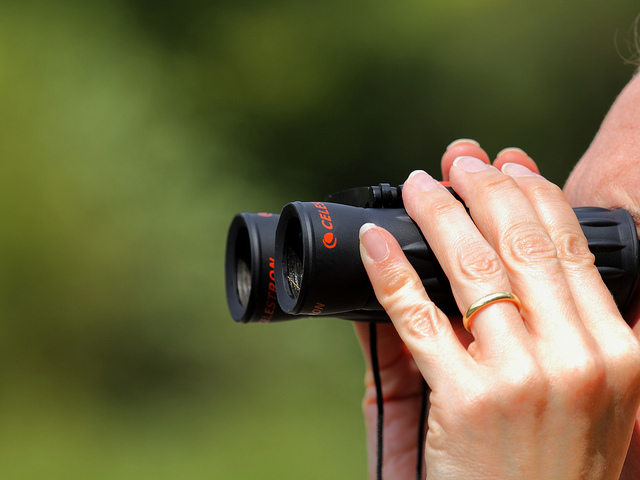The Ace Freelancer’s Guide to Asking Questions: Discovery Questions
If you’ve ever had trouble getting much needed information from your clients, this week’s installment of the Ace Freelancer’s Guide to Asking Questions is for you!
In the first installment of The Ace Freelancer’s Guide to Asking Questions I talked about the value of using questions to guide your clients or collaborators in directions that are beneficial to you.
This week I want to talk about the importance of using Discovery Questions.
Discovery questions are questions designed to gather information that is important to your work but that might not be readily offered. Or worse, is intentionally withheld.
Discovery questions are especially helpful during a negotiation because they can give you information that will help you figure out what the other person’s true interest are.
When you have a fuller picture of why someone wants to work with you and how they’re going to evaluate whether the works suits their purposes, you are better able to build proposals and offer solutions that speak directly to their concerns.
When you can do that you appear to be either (a) magical or (b) finely attuned to your client’s needs. Both are good reputations to have as a freelancer.
Types of Discovery Questions
Discovery questions can either be direct or open ended. Both types can be valuable, but they shouldn’t be used haphazardly.
Direct discovery questions are best when you need facts.
“What’s your budget for this project?”
“Who signs off on invoices and expenses?”
“When is your deadline?”
Open ended questions are better used when you need to understand how a process works or you’re trying to better understand the cultural norms or preferences within an organization.
“Can you tell me more about how the approval process works within your company?”
“How will you know if this project is successful?”
“What problem or issue will this project help you address?”
If this is a new client relationship or you’re doing very different work than you normally do for a current client, it can be helpful to start with the open ended questions to get a sense of things and then follow up with direct questions to gather details.
Don’t try to use the types of discovery questions interchangeably though. If you need specific facts and you use open ended questions to try and get them you’ll likely waste a lot of time while your client tries to figure out what you’re really asking after. Worse, you may get an answer and think you have the right information, but because of how the client interpreted your question you’re actually missing out on the bigger picture.
Dealing with Pushback
Because of the nature of the information you’re trying to collect with discovery questions, it’s possible your client might misinterpret your intentions. This can lead to them not answering your questions or pushing back and claiming you don’t really need the information “just yet.”
I see this happen most often when talking about money. Some people think that if they tell you what their budget is for a project you’ll take advantage of them. It’s your job to help them understand how knowing details about their project, including budget, will actually help them.
If you get pushback:
•Explain how having (or not having) this information will impact the work you’re able to do for them.
•Let them know that you don’t want to waste their time with offers or suggestions that don’t actually fit their budget/needs/interests.
•If you have a good example, tell them about a client interaction where you didn’t have the information you needed and how that impacted the project. (Don’t name drop though.)
•If you’re talking about numbers — money, time, amounts — and they’re hesitant to give you an exact figure, ask for a range instead. People tend to feel much more comfortable providing ranges for these sorts of things. Once they give you a range, ask them to tell you what their expectations are for both the high and low ends of the range.
Special to the ladies: women tend to get a lot more pushback with discovery questions than men do. Whatever the reason is, don’t let it stop you from asking the questions. Instead, prepare as if it will happen and tack one up for woman-kind if it doesn’t.
What should you be prepared for? You may have to put your explanations before your questions.
So instead of “What’s your budget for this project?” your question might look something like “I want to make sure that the options I put together for you serve your interests. To do that I need a bit more information. For instance, what’s your budget for this project?”
When Discovery Questions are Most Helpful
Discovery questions can be helpful at various times, information is rarely unhelpful during a negotiation, but generally these types of questions are most helpful before commitments are made or at the beginning of working relationships.
For example:
– prior to issuing a quote or estimate;
– prior to drafting and agreeing on a statement of work;
– at the start of a project; or
– when the process you thought you understood doesn’t work out the way you expected.
Discovery questions are a great way of gathering the information you need to do your best work for your clients. They can be intimidating to ask, but it’s worth a brief moment of discomfort if you can use the information you get to wow your clients and develop a reputation as a freelancer who works hard to find the best solutions for her clients.
Come back next week when I’ll continue the Ace Freelancer’s Guide to Asking Questions series. I’ll explain how you can use questions to figure out if they’ll accept your offer before you make it.
Did you like this post? Make sure to check out all the Ace Freelancer Guide posts on the blog.
Categories: How To, The Ace Freelancer's Guide To Asking Questions
Tags: Clients, communication, Freelance, interests, Negotiation, practical advice, Questions, strategy
« How to Negotiate a Contract Like a Cartoonist
The Ace Freelancer’s Guide to Asking Questions: Testing the Water Questions »








[…] See the full article at Work Made for Hire. […]